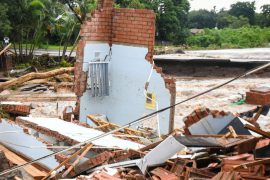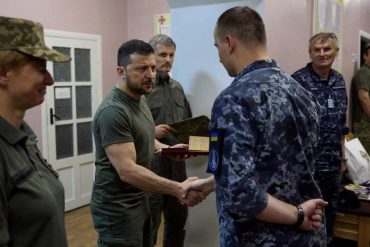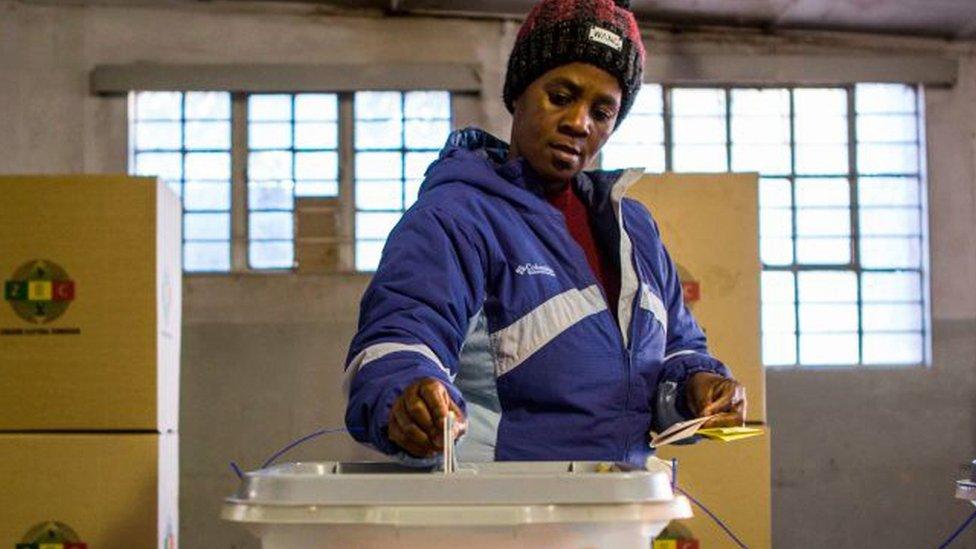
Zimbabwe dey go to di polls for August against a backdrop of one of di world highest rates of inflation and accusations of serious crackdown on di opposition.
Dem comot long-time president Robert Mugabe for 2017 but many say little don change.
For di run-up to di vote, questions linger over how free and fair ballot go be for kontri wey dey try to change im image.
When be di elections?
Zimbabweans go vote on 23 August to elect councillors, members of parliament, and a president. If no outright winner dey for si presidential contest, a run-off go happun six weeks later, on 2 October.
Who dey run for president?
Zimbabwe electoral commission don approve 11 candidates.
Dis dey sharply down on di 23 wey contest di last election, for 2018, no doubt because each candidate now gatz pay $20,000 (£16,000), up from $1,000 (£800).
But di contest dey likely to be between two candidates:
Incumbent Emmerson Mnangagwa, from di governing Zanu-PF party
Opposition leader Nelson Chamisa, from the Citizen’s Coalition for Change (CCC)
Oga Mnangagwa, 80, don lead Zimbabwe since di military force Robert Mugabe comot for 2017, and den win a disputed election a year later. E be long-time ally of Mugabe before trailer enter dia middle.
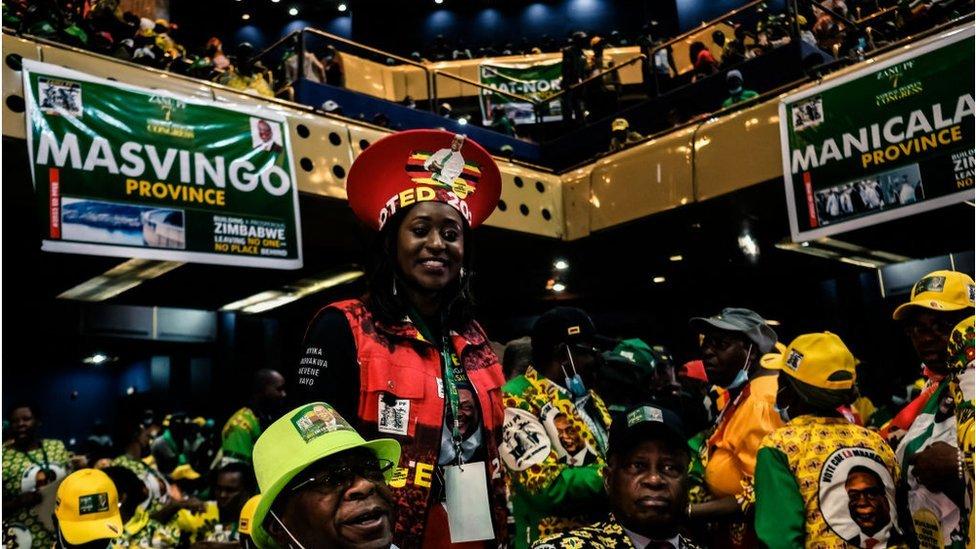
Oga Chamisa, 45, come second for 2018, winning 44% of di vote. One 2020 court ruling strip am of di leadership of di main opposition Movement for Democratic Change (MDC) and e subsequently loss access to party assets and state funding.
E form di CCC for 2022, e remain very popular for urban areas and na im be di main face of di opposition.
Other contenders include Saviour Kasukuwere – an exiled former Mugabe ally – and Douglas Mwonzora, the MDC’s new leader.
Who go win?
Zanu-PF get di advantage of incumbency, state power and access to state resources. Di party, wey don dey power since independence in 1980, also retain strong support for rural areas.
However with di economy inside serious gbege, many pipo, especially those wey dey stay for urban areas and di youth, think say time for a change don reach.
Rural voters normally turn out in huge numbers, unlike urban and youth voters, wey fit work against di opposition. Di goment don also refuse to allow Zimbabweans wey dey live for obodo oyinbo vote – wey also fit work against Oga Chamisa.
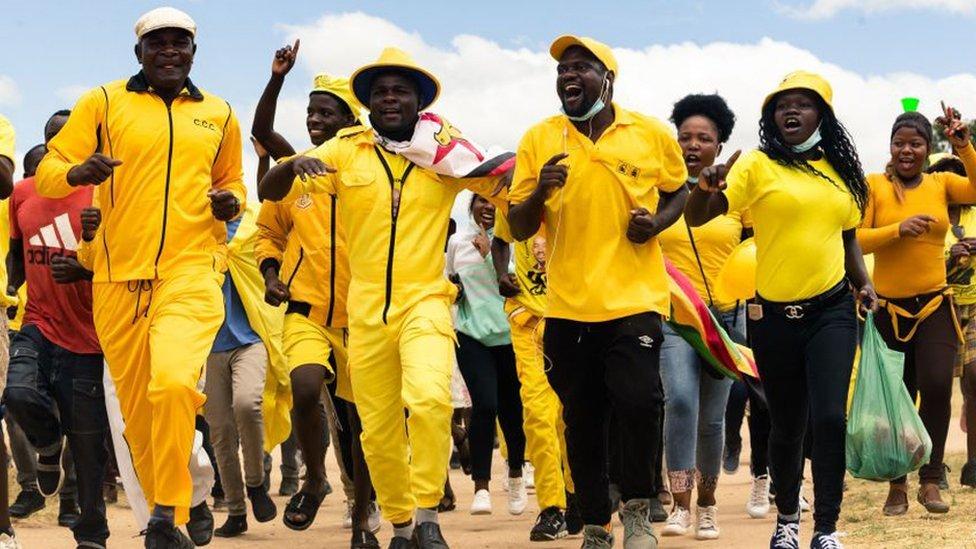
Polling so far don predict different results, soe dey hard to use dat as a guide as to who fit end up president.
Furthermore, human rights activists tok say in di past Zanu-PF don use various tactics to stay for power, wey include violence and intimidation, state-media blackouts and negative coverage of di opposition. Zanu-PF don previously deny say dem use dirty tricks against im opponents.
Wetin be di main issues?
Di cost-of-living crisis continue to be di koko of voters’ concerns, as di last three years don be some of di worst for a decade. For di 12 months leading up to May dis year, prices rise by 86.5%, one of di highest annual inflation rates for di world.
Meanwhile, businesses dey struggle to cope with crippling power outages and an unstable local currency, wey loss 86% of im value between January and early June.
Allegations of corruption also remain a source of frustration, wit a very low rate of prosecution. During di Covid pandemic, dem allegedly buy equipment at inflated prices – di health minister chop but court free am.
How di elections dey work?
For members of parliament and council candidates, dem dey win election on a first-past-di-post basis – wey mean say di pesin wey get di most votes.
For di presidential race, however, one candidate need more dan 50% of di vote before dem declare di winner, otherwise dem go do run-off election between di top two.
Wen di results go comot ?
By law dem gatz announe di presidential election results within five days after voting don end.
Di election go dey free and fair?
Civil society groups and di opposition doubt say di polls go dey free or fair. Dem cite wetin dem say don become systemic crackdown on goment critics.
Di arrests and convictions of opposition figures and goment critics don intensify over di last two years.
Di electoral reforms say di opposition don demand for years – to level di playing field, provide access to public media and remove ex-military personnel from di electoral body – dat neva happen.
CCC leader Oga Chamisa say police bin or scatter ban more dan 60 of di party meetings during by-elections last year, prompting fears say e fit happen again.
As former Zimbabwean politician Jonathan Moyo put am, Zanu-PF no go “reform imsef out of power”.
Wetin happened for di last election in 2018?
DIs go be di second time Oga Mnangagwa and Oga Chamisa go face each other.
Five years ago, di president win fro di first round with 50.8% of di vote, but violence follow polling day for wia de kill six pipo when security forces open fire on protesters.
Observers generally commend di freedom of movement during di campaign period and relative peace on voting day, but di EU for example note major shortcomings wey include state resources being misused in favour of di incumbent.
Di EU say di final results wey di Electoral Commission announce get plenti errors.
Oga Chamisa party fail for im legal challenge to have di result overturne after arguing say di presidential and parliamentary vote tallies dey off by tens of thousands.






